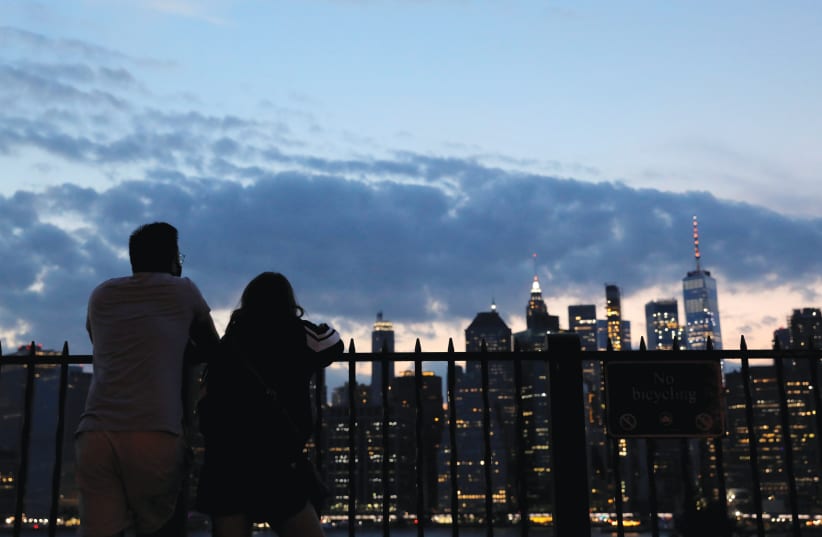In a long-awaited update of its guidance for behaviors to prevent the spread of the coronavirus, the US Centers for Disease Control and Prevention (CDC) said fully vaccinated people could also meet in small groups with unvaccinated individuals deemed at low-risk for severe COVID-19 from one other household without masks.
The slight lifting of restrictions represented a still cautious approach to public health guidance despite the quickly growing number of vaccinated people. President Joe Biden has urged Americans to remain vigilant and continue to follow CDC guidelines to prevent another surge of cases.
The CDC said fully vaccinated people should continue to follow many precautions such as avoiding big in-person gatherings, wearing masks when visiting with unvaccinated people from multiple households or wearing masks when with people at risk for severe COVID-19.
CDC Director Rochelle Walensky told reporters it was important to protect those who have not been vaccinated and remain vulnerable while some 60,000 new coronavirus cases occur every day.
"We remain in the midst of a serious pandemic, and still over 90 percent of our population is not fully vaccinated," she said. "Therefore, everyone whether vaccinated or not, should continue to avoid medium- and large-sized gatherings as well as non-essential travel."
More than 525,000 people have died of COVID-19 in the United States. Biden, who took office on Jan. 20, has encouraged Americans to wear masks for his first 100 days as president, a contrast from the approach by former President Donald Trump, who downplayed the pandemic and eschewed masks. Some states have begun to lift restrictions on a large scale.
Many Americans eager to get back to their pre-pandemic way of life see vaccinations as a way to do that. Businesses, particularly in the travel and hospitality industry, are hopeful that a growing number of vaccinated people will feel comfortable flying and dining out again.
'AN IMPORTANT FIRST STEP'
The new guidelines address how vaccinated people can safely resume some more normal activities and contacts with those outside their households while the coronavirus is still widely circulating, but they did not represent a large shift.
"Today's action represents an important first step. It is not our final destination," Walensky said. "As more people get vaccinated, levels of COVID-19 infection decline in communities, and as our understanding of COVID immunity accrues, we look forward to updating these recommendations to the public."
The recommendations come as about 30 million people, or 9.2% of the US population, have been fully inoculated with COVID-19 vaccines made by Pfizer Inc/ BioNTech SE, Moderna Inc and Johnson & Johnson, according to CDC data.
Nearly 18% of the US population, or 58.9 million adults had received at least one dose of a COVID-19 vaccine.
The new guidelines were "reasonable and quite appropriate," said Carlos del Rio, executive associate dean at the Emory School of Medicine. "We need to start telling people what to do, and in that, the guidelines are pretty clear."
Currently authorized COVID-19 vaccines prevent people from becoming ill but not necessarily from being infected. Data on whether vaccinated people can still spread the virus to unprotected people is sparse, and Walensky warned that the risk vaccinated people could spread the disease remained.
The CDC last month said vaccinated individuals could skip the standard 14-day quarantine after exposure to someone with COVID-19, as long as they remain asymptomatic.
